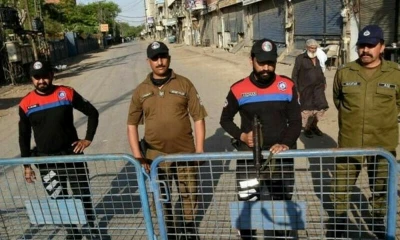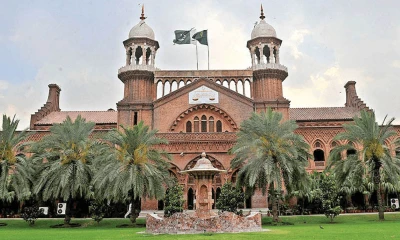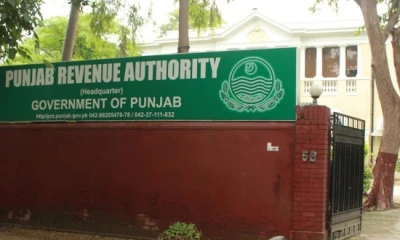Regional
Are Black voters drifting from Democrats? It’s complicated.
On an unseasonably warm October afternoon, I did something I’ve done just about every fall since 2009: I made my way to Howard University’s (HU) campus to celebrate homecoming. It’s an event that’s reached almost hagiographic status: name-checked in rap songs…
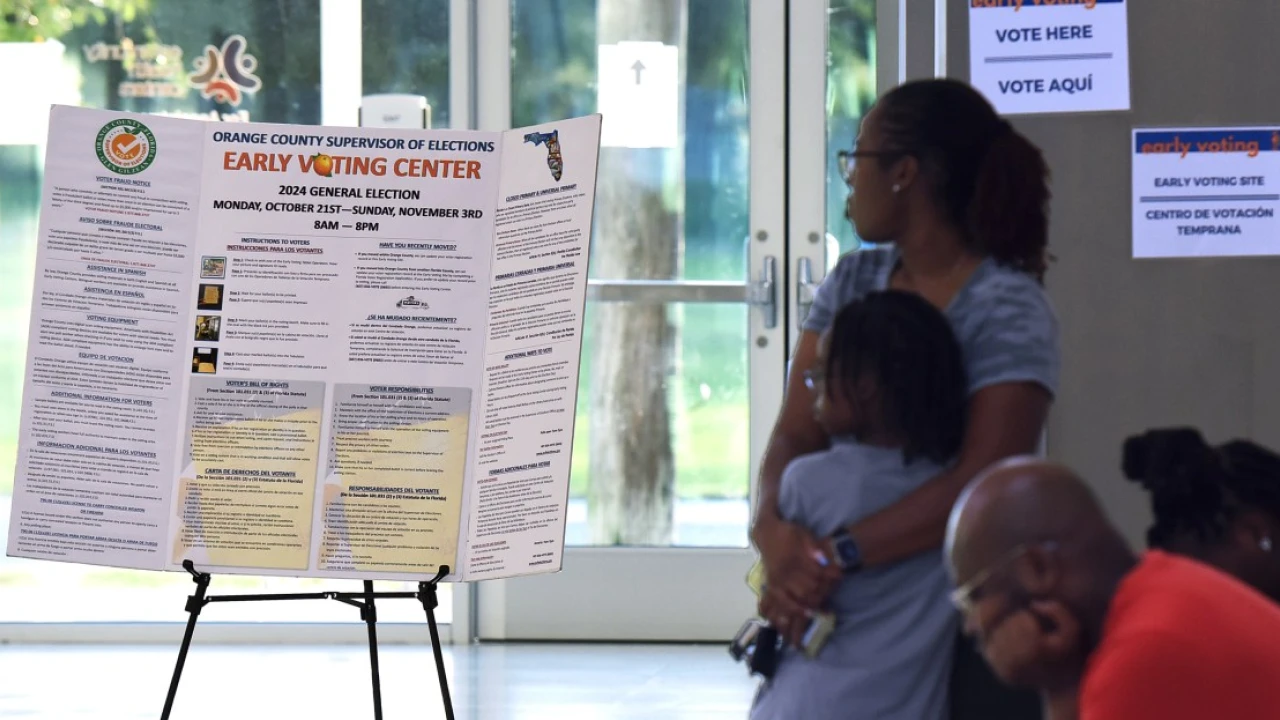
On an unseasonably warm October afternoon, I did something I’ve done just about every fall since 2009: I made my way to Howard University’s (HU) campus to celebrate homecoming. It’s an event that’s reached almost hagiographic status: name-checked in rap songs and even launching modeling careers.
The energy in October at my alma mater is always frenetic: You see students and alumni dressed their best, babies in strollers on the yard wearing HU onesies, and friends who have stayed connected across decades gathering once more at what’s lovingly referred to as the Mecca. This year, the excitement in the air was even more palpable. For lack of better phrasing, the vibe was different. On one hand, the obvious culprit was that the university was celebrating its 100th homecoming. On the other hand, that difference may have something to do with the fact that the school’s most famous alumna (at least right now) could soon become arguably the most powerful person in the world.
Vice President Kamala Harris wasn’t on campus — she has spent part of her fall at the homecomings of historically Black colleges and universities (HBCUs) in swing states and not bright blue DC — but you wouldn’t know that looking around. Howard does not have a political affiliation, but vendors gathered outside the entrance to the football game hawking bucket hats with Harris’s name on them; her sorority sisters wore T-shirts with her face embroidered in pink and green; people fanned themselves with Harris/Walz fans while R&B singers entertained the crowd; and children in HU gear played in a bouncy house as their parents looked on. Despite its nonpartisan stance, the university is where Harris plans to be the night of the election, in a way creating a homecoming all her own.
In short, Howard is not a place with large numbers of Donald Trump supporters.
But Black voters are not a monolith, and the student body at Howard — one of the nation’s most prestigious universities — is not a representative sample of all Black voters. Indeed, some polls suggest that Black voters may be supporting Trump in higher numbers than in either of his previous two runs — a shift that some observers believe will be large enough to mark a “racial realignment” in American politics.
Still, the polls paint a murky picture. A recent NAACP survey found Black men were backing off their support for Trump and coming toward Harris in the final stretch before the election.
Some experts are skeptical that, after the election, the “racial realignment” will materialize. Enter Andra Gillespie, a political scientist and associate professor at Emory University who specializes in Black political participation. “The story of the cycle may very well be that people are overhyping the extent of Black defections away from the Democratic Party to the Republican Party,” she says.
She points her finger at polling — or rather, the lack thereof — for Black voters specifically. While there has been plenty of polling with enough respondents to get a clear picture of the electorate, Gillespie argues that the numbers of Black voters within those samples don’t provide a clear enough picture of Black voters. I spoke with Gillespie in October about the number of votes Trump may get from Black voters, and how even getting just 80 percent of the Black vote worries Democrats. We also talked about the roles education and age play within this segment of the electorate, and whether we’re seeing shifts based on those factors.
Below is an excerpt of our conversation, edited for length and clarity.
There’s been a lot of talk about the Harris campaign’s struggles with Black voters lately. Can you lay out what that struggle looks like? Are we talking about Black people leaving the Democratic Party en masse?
No. The first problem has been making a lot of conjectures based on sample sizes that have huge margins of error. So you’re looking at very noisy data. This started when Joe Biden was still the Democratic nominee for president. We forget that the number that comes out in surveys is the midpoint of a range of multiples. That’s why surveys are always plus or minus.
There was some evidence of [Black support] softening. We don’t know — because [Biden] dropped out of the race — whether or not people would have solidified their support for Donald Trump. Joe Biden was likely going to perform somewhere in the neighborhood of what he had done before and the numbers that you were getting, especially in the winter and early spring were suggesting that Donald Trump could get 30 percent of the African American vote. If your margin of error is minus 10, that means that that number could, in real life, be as low as 20 percent, which would suggest a gain.
I’m thinking back to the Obama years, and 20 percent would be a lot.
Twenty percent would be a lot since nobody’s come close or even in the high teens since Gerald Ford and Richard Nixon. So yeah, it would be unprecedented. But that’s what 100 people were saying or 150 people, or sometimes 200 people were saying in a survey in March or in February.
I want to be very clear: Donald Trump could actually improve his share of African American voters. I’m not saying that that’s impossible. But what’s a more likely scenario is that he makes a marginal gain.
Looking at the numbers from the New York Times/Siena College poll that came out [recently], Trump’s numbers are in what I would call the normal range for a Republican candidate. What everybody was concerned about was the fact that Kamala Harris is pulling in below 80 percent on that poll. The upper bound of the margin of error would put that number into the low 80s, which would still be underperforming. But she still has three weeks from an election.
Eighty percent of any demographic sounds like a lot of voters, but it’s framed as a problem for the Harris campaign.
It’s a problem for the campaign because Black people make up the base of the Democratic Party; it becomes a problem when she’s reliant on them turning out voting almost unanimously for her and in high numbers and in key battleground states.
In a state like Georgia, for instance, most white people are Republicans. Black people make up more than half of the Democratic Party in the state of Georgia. If they have anemic turnout or start to vote for the Republican or other candidates in the race, there just aren’t many other votes that she can pick up. For a state like Georgia to be competitive, you’ve got to perform at historical averages, which means she needs to be doing 90 percent or better. And she needs Black turnout to be proportional to their actual numbers in the electorate: 30 percent of voters.
You also have to care about it in the Blue Wall states, because even though Black people don’t make up as large a proportion of the population when you’re talking about margins, that could easily be 10,000, 20,000, or 50,000 votes.
I want to get into one of the narratives we’ve seen this election cycle, and that’s this flip in the parties when it comes to education. One of the narratives that we see emerging is that Democrats are now the party of those with college degrees — your lawyers, your doctors; and Republicans are more the party of the working class — your blue-collar workers, maybe without a college degree. How do you see that playing out among Black voters?
I think one thing that should be noted is 2016 was the year that pundits discovered that working-class white voters were Republican. That trend actually started a long time ago. I’ve seen graphs that chart this back to the mid-1970s, where you can see a decline in the number of non-college-educated white voters who are voting Democratic in elections. People just discovered it because Donald Trump ran on a populist platform, but he wasn’t doing anything revolutionary or new there at all.
So yes, we now accept that education correlates with party identification, and voting behavior with college-educated voters being more likely to vote Democratic these days. If you go back and you look at that New York Times/Siena College poll, and you look at the breakdown in terms of support for Harris and Trump based on college education, you don’t see much of a difference in terms of support among Black voters.
There are more conservative Black people who are still identifying as Democrats than Republicans, and the reason why is because of race. People who have a strong racial identity, people who perceive that the Democratic Party is the better party to handle issues related to race and civil rights. My friend, Tasha Philpot at the University of Texas, has noted that Black people aren’t necessarily putting the same weight or emphasis on social conservatism in the same way that white people might.
If education is not this predictor for who Black people will vote for, is it a predictor of if they will vote or not?
If we’re looking at support for Harris, there’s only a percentage point difference [between Black voters with and without a bachelor’s degree]. I see differences in age — that’s actually not that unusual.
We expect that younger people have weaker partisan attachments because they’re new to the electoral process. Older age cohorts, the oldest Black Americans uniformly, have made up their minds. I think part of the push on HBCU campuses is to get a group of young Black voters who are probably the most likely to show up because they’re the most resourced to be convinced to support Kamala Harris and to convince their friends to do that as well.
The idea that they’re not strong Democrats could be a harbinger of things to come, but it’s going to take me 20 years to figure out what these folks are doing when they’re in their late 30s before I would be willing to say, “We’re witnessing a realignment of Black voters away from the party.” But I think that there’s still the question of who’s actually going to show up.
I think it’s interesting because you mentioned that the Harris campaign is on this HBCU tour. They’re going to your Spelmans, your Morehouses, to talk to these young voters who are most likely to be resourced and most likely to show up to the polls. Every election year we hear the phrase “Black people are not a monolith” and that’s always been true. But I think of W.E.B. DuBois and this idea of the Talented Tenth – that one of the jobs of the Black elite is to achieve racial progress. But that leaves out the other 90 percent of Black people. How have we seen this dynamic between education, class, and politics play out through the years?
I think it’s important to keep in mind DuBois repudiated the idea of the Talented Tenth. Part of the reason why college students in general are more resourced is, by being in college, they are picking up skills that are actually going to help them navigate civics.
As they get older, their education is going to prepare them for jobs that might actually give them more flexibility to be able to vote easier than others who might have shift work where their schedule is predetermined for them. All of those things accumulate and matter in terms of predicting a person’s likelihood of turning out to vote.
Also, colleges end up reducing the costs of voter registration and voting. If you are on a college campus where your office of student life has put out voter registration materials so that all you have to do is basically pick one up as you’re walking out of a cafeteria, that’s a lot easier than somebody who is living in an apartment downtown who then has to go to a county board of elections.
Do we know why Trump has been able to peel away some of these Black voters? What are the factors there?
I am skeptical of how effective he has actually been, and we’ll see how those numbers play out on Election Day. I would not be surprised at a marginal gain of a percentage point or two, but he was never getting the 30 percent that he claimed to get. If I think about those marginal gains, there have been outreach efforts to African American men the Republican Party has been engaged in for a long period of time that actually predates Donald Trump.
The message that Trump has used to try to reach out — which has usually been worded in a really offensive way — actually harkens back to a strategy that Richard Nixon used to try to reach out to Black voters. Keep in mind, Richard Nixon didn’t do that badly, relatively speaking, among Black voters, despite the Southern Strategy, and it was because he used this strategy called Black Capitalism. He wanted to appeal to Black voters by talking about how Republican policies were more conducive to entrepreneurship and economic prosperity. And when you heard Donald Trump four years ago, trying to talk about his Platinum Plan — which, arguably, he may have ripped off from Ice Cube — that’s a play toward Black capitalism.
[Trump] in particular has benefited from having been in the public eye, having been sort of like the name-check for financial success. It’s not surprising that there’s some people who would ascribe very positive traits to him and to his presidency.
How do you see all of this playing out and evolving beyond 2024? What will you be looking out for in the years to come when it comes to the Black electorate?
I think that we are still kind of in a post-1964 paradigm, where Black people are going to be overwhelmingly Democratic in their voting orientation. I expect that the ratio is going to still be somewhere in the neighborhood of about nine to one in favor of Democrats, give or take a couple of points.
Let’s say that Republicans incrementally gain two to three percentage points per election cycle among Black voters. Then 20 years from now I might say, “Black people have been engaging in a secular realignment away from the Democratic Party and what we see is Republicans becoming more competitive over time.” If that happens and we start to point to the trend line, then we are going to start to go back to 2020 and 2024 and see that as the beginning of the shift. But if we are in the beginning of the shift — I don’t know that yet. It’s way too early for me to say that. I think the thing that will make it change is not Donald Trump.
Continue Reading
-

 Sports 2 days ago
Sports 2 days agoPCB appoints Azhar Ali as head of youth development
-
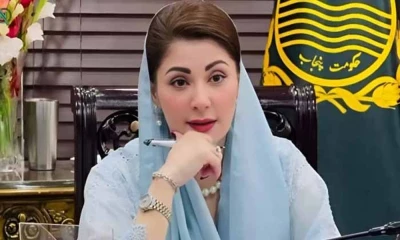
 Regional 2 days ago
Regional 2 days agoPunjab situation better than others, no compromise on merit: CM Maryam
-
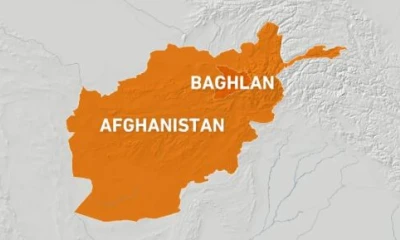
 World 2 days ago
World 2 days agoGuman kills 10 in attack on Sufi shrine in Afghanistan: interior ministry
-

 Pakistan 1 day ago
Pakistan 1 day agoGovt to suspend internet services amid PTI protest
-

 Sports 17 hours ago
Sports 17 hours agoPakistan win toss, opt to field first against Zimbabwe in 1st ODI
-

 Business 1 day ago
Business 1 day agoGold glitters again in Pakistan after global price hike
-
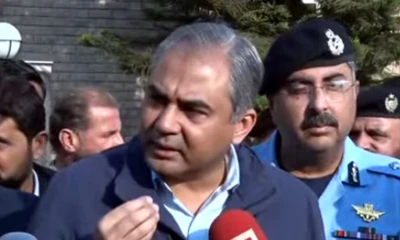
 Pakistan 2 days ago
Pakistan 2 days agoNobody to be allowed to stage sit-in or gathering in capital: Naqvi
-
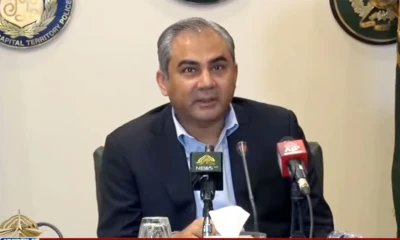
 Pakistan 1 day ago
Pakistan 1 day agoNo protest or rally is allowed in Islamabad, says Naqvi






